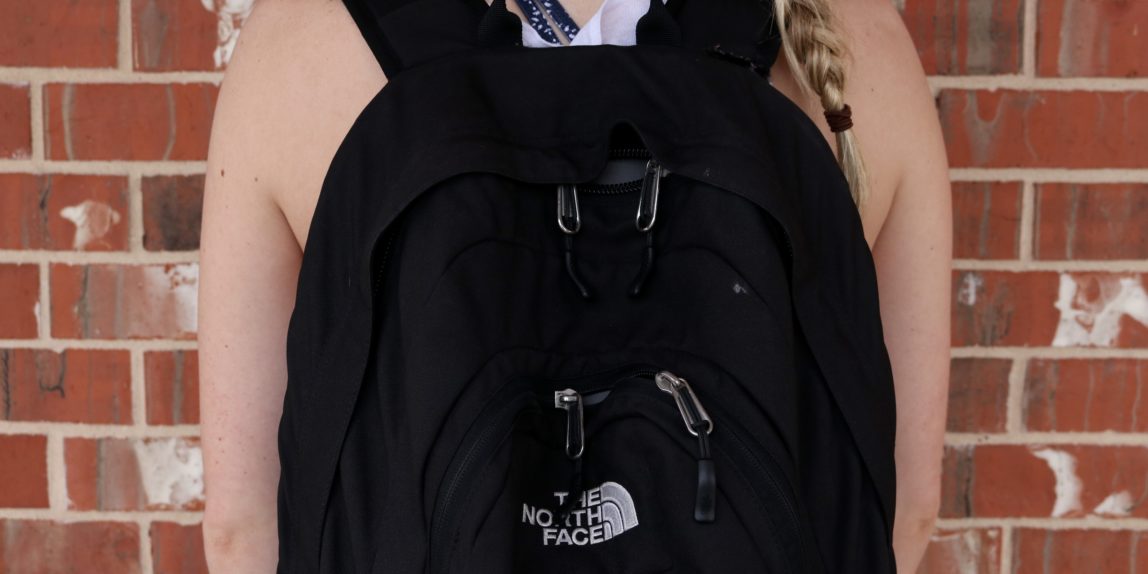Story by Kaitlyn DeHaven | Photo by Michaela Schirra
The Baylor University School of Education is extending its reach and connecting with the Waco community through their mentor program EnAbled for College.
The program consists of Baylor graduate students mentoring local at-risk and/or disabled high school students. Once a week, five graduate students from the School of Education go visit Waco High School and McGregor High School to meet one-on-one and mentor juniors and seniors in regards to post-secondary education or placement.
The program started four years ago and is funded by the AT&T Foundation. The AT&T Foundation believes in helping kids in need who want to go to college or need help taking that next step after high school.
Dr. Terrill Saxon, interim dean of the School of Education, said these high school students would usually be first-generation college students, so they might not have the resources to pursue post-secondary education on their own. He said that through EnAbled, students learn practical things, such as how to do a FAFSA and how to send in applications for colleges and scholarships.
Tamara Hodges, senior lecturer in the department of educational psychology, helps lead the program. She said that in addition to learning practical skills, students build relationships with the mentors and learn about themselves and what they are capable of.
“When somebody is beaten down pretty hard by society, if they don’t believe [that they can graduate], they don’t see it,” Hodges said. “So some of the things we build into these kids is self-advocacy, self-efficacy and how to ask when you don’t know.”
Hodges said this guidance is vital during a student’s transition period because it could end up defining the rest of his or her life, and maybe even affect generations to come.
“They’ve gotten scholarships, they’ve gotten accepted and they’ve been given hope,” Hodges said. “It’s life-changing. It’s generations-changing.”
Saxon said that while the program greatly impacts the high school students involved, it also leaves a significant mark on the graduate students — helping prepare them for their future careers in education.
“They are in a school setting helping children who have impediments to their progress and education, and so they get to be part of a program that focuses on removing those,” Saxon said. “A bit of mentoring goes a long way with these kids. [The graduate students] are getting good exposure to the population that needs them the most.”
EnAbled has experienced a few changes during the four years it has existed. Hodges said that in addition to realizing they needed to start mentoring students before their senior year, they realized they could have a greater impact by widening the scope of students they reach out to.
“It used to just be kids at-risk, kids who had failed a grade, were considered homeless or lived beneath the poverty level — but really, AT&T encouraged us to start looking toward kids who have learning disabilities as well because it’s kind of an under-served population,” Hodges said. “The kids can do it, but they don’t have a lot of leadership and guidance that they need to do it.”
According to the 2017 GradNation report, the likelihood of students with disabilities graduating from high school is extremely low in most states. Thirty-three states in the U.S. reported high school graduation rates for special education students below 70 percent.
Hodges said that, in addition to this, there is a low amount of research that has been done for post-secondary education for students with disabilities, which deters the students from trying without help. She said this makes EnAbled’s job even more vital to the community in that it is bringing something new to the table, and serving an under-served population.
Hodges and Saxon both said that they hope to see expansion of the program in the future.
“I would love to do just [previews] of [the program] for sophomore year [students],” Hodges said. “It would be great to have the seniors talk to the sophomores, to have peer mentoring or to have kids who have graduated high school come back from post-secondary placement and say, ‘If I can do it, you can do it.’”
Hodges said they see better results the longer they work with the students, but the amount of work the program can do relies heavily on funding.
“Our funding cycle impacts a lot,” Hodges said. “If we could go in during the spring before [the next school year] and talk to counselors, pick our kids and be ready to go, we could save the whole month we spend doing that in the fall.”
Hodges said some of the biggest difficulties the students face are things that some people would never think of as potential barriers, such as internet and transportation. She said EnAbled has really helped students by giving them someone to help them problem solve and overcome the obstacles that stand in their way.
“Some of these kids are homeless, work full-time — stories we can’t even imagine,” Hodges said. “We have so many stories of kids who have written back to their mentors and say, ‘Nobody could’ve helped me like this.’”

